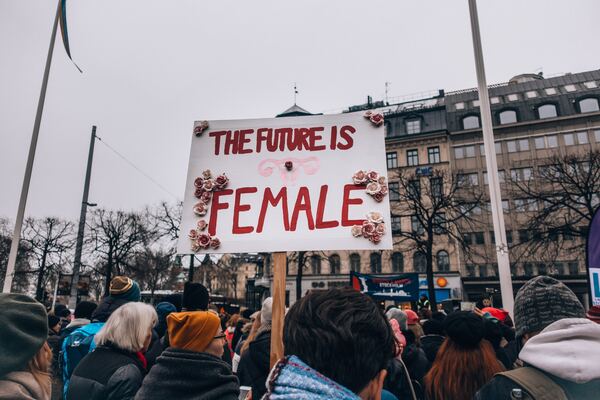How Does the Empowerment of Women Promote Economic Development?

The labor fights of the early 1900s for improved working conditions and women's right to work flowered into what is now known as International Women's Day, which was formally recognized by the United Nations in 1977. Due to the growing pandemic, women's positions in the workforce are currently in a precarious position, making it more crucial than ever before to pay attention to gender.
Studies conducted by the International Monetary Fund (IMF) frequently emphasize the benefits of equality, such as improved productivity and financial stability. In honor of International Women's Day, we have gathered a collection of the most current blogs, podcasts, and papers that we have found to be linked to gender issues.
Why are there so many jobs available yet so few people willing to fill them?
Because of the added strain that is placed on mothers of young children as a result of prolonged school closures and a scarcity of childcare options, a significant number of these women have left the labor field, a phenomenon that has been dubbed the "she-cession." An excess employment contraction for mothers of children under the age of 5 accounted for approximately 16% of the total employment gap in the United States relative to pre-pandemic levels, as stated in a recent report compiled by the research team of the International Monetary Fund (IMF).
The Tax Policy and Gender Equality: What Effect Does the Tax Policy Have on Gender Equality?
In order to investigate both implicit and explicit gender biases, as well as remedial taxation, recent study investigates the taxing of households, capital, and wealth, in addition to consumption taxes.
Taking initiatives in the legislative arena to remove legal obstacles to the economic empowerment of women: In many cases, laws can perpetuate gender stereotypes in a way that restricts the economic participation of women. In a recent working paper, the staff describes the many different kinds of legislative obstacles that stand in the way of women's economic empowerment. They also address how improvements such as parental leave may successfully promote gender equality and encourage women to work.
The spike in physical, sexual, and emotional abuse of women and girls during times of social upheaval and lockdowns has been referred to as a "shadow epidemic." This puts the growth of the economy at risk. According to a recent research conducted by the International Monetary Fund (IMF), the level of violence in Sub-Saharan Africa poses a threat to the region's overall economic expansion. Estimates derived from satellite data on nighttime illumination suggest that a one percent rise in the rate of violence against women can reduce economic activity by as much as eight percent.
Our conception of productivity is skewed, according to Jayati Ghosh, an economics professor at the University of Massachusetts Amherst. She explains that this is because the measures used to measure gross domestic product do not take into account the unpaid labor performed by women, particularly in the form of caregiving for children, the elderly, and other demographics.
When climate adaptation strategies ignore gender imbalances, such as restricted access to school and job, new kinds of exclusion arise. One way to promote gender equality is via taking action to reduce greenhouse gas emissions. For F&D, the UK's international champion on adaptation and resilience for the COP26 chair, Anne-Marie Trevelyan, discusses why women and girls are more sensitive to the repercussions of climate change and pay a bigger price for it.
In this article, Lisa D. Cook examines the ways in which racism and sexism are harmful to everyone. She is a professor of economics and international relations at Michigan State University, and she was just recently named to the Board of Governors of the Federal Reserve System. In this podcast, she describes her study on how violence affects creative output and economic development. Cook created a reputation for herself in the area of economics, which was dominated by white males, as a black woman economist by doing ground-breaking research on the ways in which racism, sexism, and violence influence economies.
The Mom's Emergency, also Known as COVID-19:
According to the estimates provided by the International Monetary Fund, the pandemic is having a disproportionate impact on working mothers. According to data from the United States, the United Kingdom, and Spain, women who have young children have been more affected by the loss of employment opportunities than other women and men.












